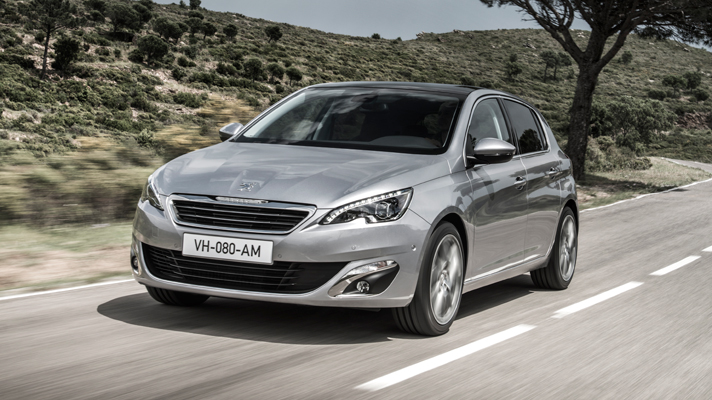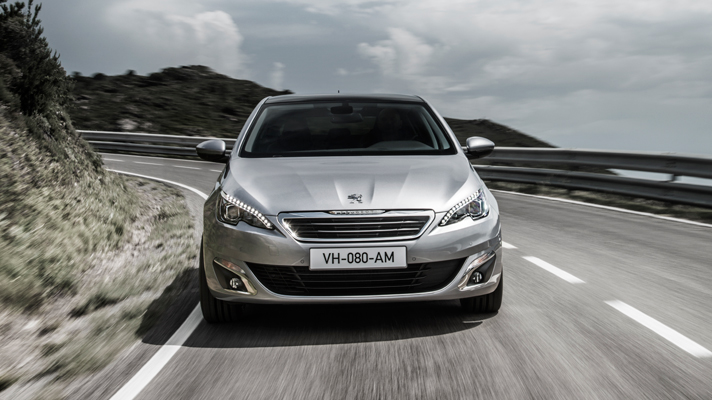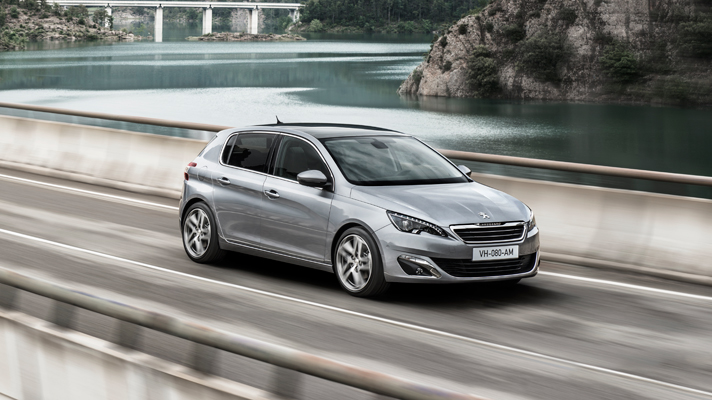
SPEC HIGHLIGHTS
- BHP
110bhp
- 0-62
11.1s
- CO2
95g/km
- Max Speed
117Mph
- Insurance
group12E
That looks... familiar.
Many millions of Euros worth of investment, 116 patents filed in its development, and more than two million miles worth of road testing conducted, and all you're implying is that it looks generic?
Yes.
Well, we'll concede that it is partly so, but otherwise we're of the opinion the new 308 doesn't actually look that bad. Handsome. A smart thing, and certainly a huge step on from the old, bug-eyed 308.
Hang on, why is this new one called the 308 too? Surely it should be called the...
309, yes. But Peugeot has already made a 309, back in 1985 (they sold 222,783 in the UK). And anyway, from now on, Peugeot has decreed that All Models Shall End With ‘08' (with emerging economies getting the ‘01' nomenclature). It's designed to breed familiarity with a specific model number, and thus, we'll only ever get a new 308. Kind of like a new Golf. VW doesn't call the next one the Golf-ier, does it?
So it's really all-new?
Yes. The 308 sits on an entirely new platform only previously seen in the new Citroen C4 Picasso. It's called the ‘EMP2' (efficient modular platform), and because of it, the new 308 is 140kg lighter than the old one. It's also lower, wider, but features a longer wheelbase, so those shorter overhangs mean the car gets a squatter look. The weight saving has even extended to the tailgate, which is made of plastic.
What about engines?
You can have a 1.6-litre diesel with 92bhp or 115bhp, a 1.6-litre petrol with 125bhp or 155bhp, and next year, a series of 1.2-litre three-pot turbo petrols that promise to make light work of the lightweight body. In fact, this new 308, with the 92bhp 1.6-litre diesel, weighs 1,090kg, just a few bags of sugar more than a VW Polo, a car from the class below.
Top Gear
Newsletter
Thank you for subscribing to our newsletter. Look out for your regular round-up of news, reviews and offers in your inbox.
Get all the latest news, reviews and exclusives, direct to your inbox.
So how does it drive?
Well. The ride is superb, supremely composed, and the interior refinement is top notch. The problem lies in trying to extract any more from the package. Show it a set of sweeping curves and hairpin bends, and the 308 will shrug its Gallic shoulders and grudgingly set off. There's noticeable body roll through the corners, and the steering doesn't communicate as effectively as you'd like. It's a tiny bit vague, and you sadly don't get the info quick enough that you're understeering. This robs you of any desire to go quicker. Dial the pace back down though, and it's a nice cruiser, but it's no Focus. Or Golf.
The 1.6-litre 155bhp petrol is a punchy little thing, though the 125bhp one seems to struggle a tad, as does the lower powered diesel. The 115bhp diesel is actually really refined, but again, needs a gentle thrashing before it accelerates anywhere with urgency. Be interesting to try the three-pots, out next year...
And on the inside?
More upmarket than the old 308. There are now literally no buttons on the central dash, all of them instead contained within a 9.7in touchscreen which handles everything: air-con, sat nav, media, etc. At first it proves fiddly and distracting (not ideal when you're driving), but familiarity expedites your inputs. The fit and finish of this area of the dash is lovely, all soft-touch plastics and classy ambience. The area directly underneath is a bit scratchy and hard, and dents the overall feeling of premium Peugeot has tried to capture. The rear legroom isn't great either, but the boot is huge, and overall it's a decent package.
So, should I buy one?
Put it this way, with the Golf, Focus and Astra, this C-Segment is horrendously competitive and fierce. One tiny slip and you're shark food. The level of competence shown by those cars means this 308 has its work cut out. It's a nice drive, but perhaps one for those who put refinement and ride quality over driving dynamics. Prices are expected to start from £14,500 - our 1.6-litre 155bhp petrol test car was approximately £20,000.
Featured

Trending this week
- Car Review
BMW 1 Series
- Top Gear's Top 9
Nine dreadful bits of 'homeware' made by carmakers






